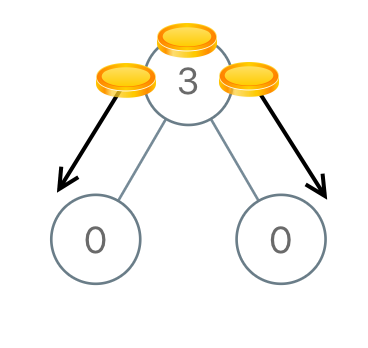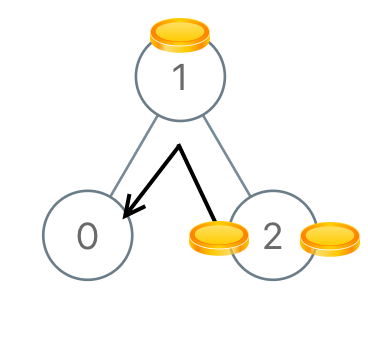26. Distribute Coins in Binary Tree
Input: root = [3,0,0]
Output: 2
Explanation: From the root of the tree, we move one coin to its left child, and one coin to its right child.Input: root = [0,3,0]
Output: 3
Explanation: From the left child of the root, we move two coins to the root [taking two moves]. Then, we move one coin from the root of the tree to the right child.Input: root = [1,0,2]
Output: 2Input: root = [1,0,0,null,3]
Output: 4Solution: (Postorder traversal)

Last updated



